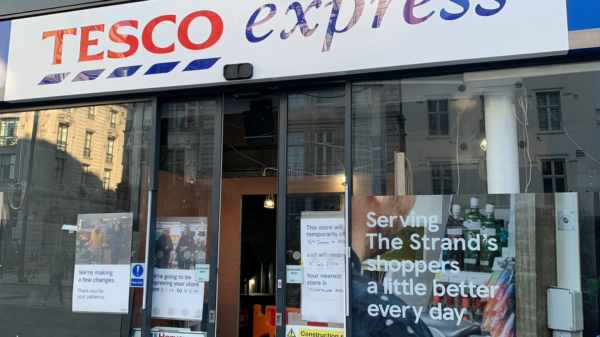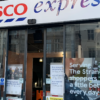News editor Emma Fallside interviews Sude Inan from the ‘Stop The Music’ campaign on the culture surrounding spiking, ways to tackle the problem and what first years should know ahead of Freshers’ week
In the last year, drink and needle spiking has become a scary reality for students across the nation. Specifically at King’s College London, there have been multiple reports of spiking at popular KCLSU student venues, such as Guy’s Bar and the Dover Castle.
In February 2022, Roar reported that there have been increased security checks in KCLSU venues, as well as test kits to check your drink being made available. But, have these efforts really done anything to address the causes of spiking?
In anticipation of a new academic year, and a new incoming set of first-years getting ready to attend Freshers, I sat down with some of the leads of the Stop The Music campaign- an anti-spiking movement aimed at KCL student venues. For more information on the campaign’s specific policy aims, you can read Stop the Music’s full policy document (as of June, 2022) here. However, in my conversations with Sude Inan, most of what we discussed was the most difficult aspect of addressing student safety: the culture which allows for spiking to happen in the first place.
Roar: For a bit of background, what was it that pushed you guys to start the ‘Stop the Music’ campaign?
Sude: So three guys emailed us in the Intersectional Feminist Society to tell us about an event that they thought was unacceptable at Guy’s Bar, they thought they had witnesses a spiking case. They saw a girl being dragged down the street by two people, she was unconscious, but the security guard just stood and watched as it happened.
S: So these guys emailed us to say they witnessed this, and they didn’t think it was acceptable, and they wanted to do something about it. So we sat down to brainstorm some ideas about what we could do, and it all started from this meeting. I think this origin story is a good representation of the whole campaign because what we’re trying to achieve with all of this is to raise peoples’ awareness to say “this is not acceptable” when we witness something like that.
R: It seems like most spiking cases are not reported at all; has this fact featured at all in your campaign? Is reporting something that you would like to see more?
S: So we always try to discuss that the campaign is not penally focused. We are obviously trying to work on reporting, I’m personally working with KCL to improve their reporting systems, and I’m glad there’s some sort of action happening there. But, KCLSU has tried to shift compensation into this, as in what punishments do we give people, these spiking cases need to be reported to find perpetrators to punish. Our focus is more, what can we do to prevent [spiking].
R: It seems like with a rise in spiking, a lot of the expectation has been around how can victims be more responsible themselves?
S: Yes, and when it comes down to it these are place where we go to have fun and let loose a bit. Obviously we’re not so detached from reality to say that you shouldn’t be aware of your own safety because this is the current situation.
R: How has the response to spiking changed at venues over the last year? Was there much security response, say in the beginning of last year (2021-22)?
S: Well [the response] was evolving throughout the year, maybe not exactly with the speed or direction which we hoped, but before, in my observation, it has always been around issues of legality and police investigation. So the first thought, at least last year, was never in the interest of the actual victim, or what could [the venue] have done better, but instead oh, is this something that requires the police or not. Like how legally responsible are they.
S: But they have been introducing some new measures, they’re setting up “safe zones”, but the thing is, it’s not advertised and they’re not visible. We don’t think it’s enough but it’s also just not visible. So there’s this reluctance I think to admit that there’s a problem, and that’s keeping actual progress from happening. They’re taking some small steps.
R: Have any of your proposals have actually been adopted? I haven’t really seen anything about them mentioned on places like Dover Castle or Guy’s Bar’s websites.
S: Yeah, they were making these posters, but part of the problem is when we give them ideas to consider, they take those ideas and dilute them and adapt them in a way which doesn’t address the problem very directly, then they introduce it. For example, when we asked them to hire a medical professional to be present at events, they said they could hire a medic student from King’s, and we told them that would be a conflict of interest, having a student help identify spiking done by other students, it’s not very professional or appropriate. I think when they do take some steps they tend to miss the point about actually addressing the cause of these incidents.
R: Do you think more awareness about student groups that are trying to address this problem would be helpful?
S: I think there needs to be a combination of both awareness and action. Awareness can get you to a certain point, but at the end of the day these are institutions, they have managers which are responsible for running them. So we’re trying to achieve a larger culture shift, because we think a student union bar is partially responsible for shaping the culture around how the student community behaves.
S: If these venues take responsibility and commit themselves to promoting this idea that, whatever you do here, you’re going to be judged in the way that you deserve if you perpetuate harm, this can help to create a more solid change.
R: What information would you give to first years who, like you said, come to King’s and maybe don’t know much about the social scene but may be scared of going out and getting spiked?
S: I think it’s important, especially for first-years when you’re in a new place and you don’t really know the social culture, it can be quite intimidating, I think it’s important to have an honestly portrayal of how places like Guy’s Bar are like. Then students can make up their own minds. I do think it’s important to know that there are groups of students out there trying to change these places for the better.
S: There are incredible resources out there, like NotOnMyCampusUK has great resources about what you can pay attention to when you’re out, although I do think it is unfortunate that we do need to familiarise ourselves with these sorts of precautions. I would want to tell a first-year that this university does really promote a community, and responsibility within that community. So, it’s not an outrageous response to demand better. I think first-years should feel like they can ask for better from their community, and we should ask for better.
S: Also, if something at an event were to happen to you, that is not a responsibility that falls solely on you. I think we should make that really clear. There needs to be pressure on venues to take care of you.
R: Finally, what specific changes are you hoping to see this year in terms of spiking and the culture that perpetuates it?
S: I think the idea that how we address these problems should be on penal terms holds back a lot more progress from happening. There’s a lot of focusing on punishment, or who’s in the wrong or in the right. Of course [with spiking] there is a right and a wrong in this situation, but if that’s the only thing we’re addressing, we can only get so far. If we could take consent and try to apply it in very minor, very subtle ways, it would be a much less superficial process. I think we need more honest conversations, we have to listen to each other, to have a culture where consent is the norm.
S: You cannot keep punishing people who don’t care about consent and then expect them to change. The legality, the punishment should be there, but you cannot just rely on that to create change.
Further information about Stop The Music, including events for this year and how to get involved, can be found on their Instagram @stopthemusiccampaign.



















